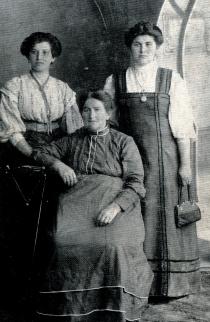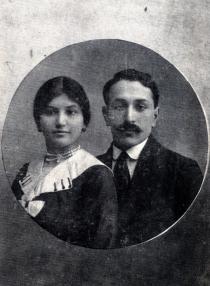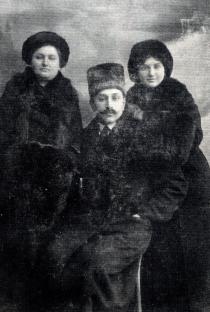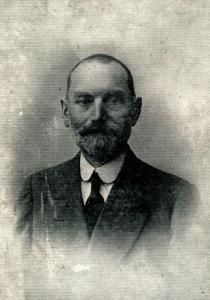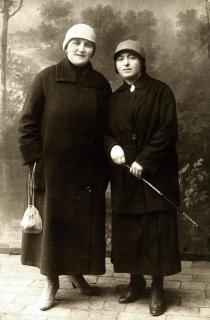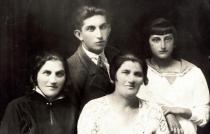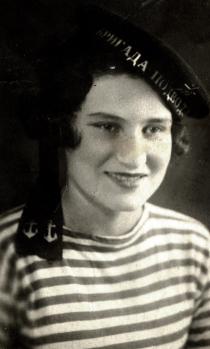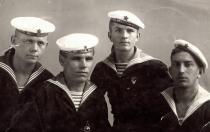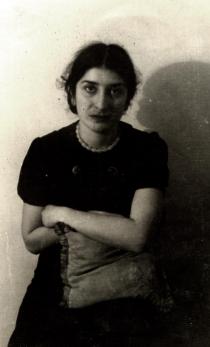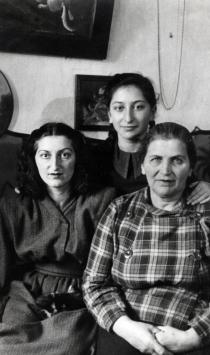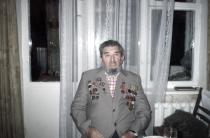This is my mother Raissa Shtein (in the lower row) and her sister Rosa. Standing: my brother Yakov Shtein and I, Vera Shtein. Photo made in Kiev in 1934.
Aunt Rosa, my mother's older sister, stayed with her husband Semyon Mikhailovich Krivosheyev in Zvenigorodka. Like many others, they thought that they were very old and the Germand wouldn't do them any harm. Semyon was taken along with the other Jewish men. The Germans put out his eyes. Then they put them all in a shed and burned. Aunt Rosa had a friend Sekleta (they were friends from the time when they lived in Stetsovka). She took Rosa to her house and Rosa lived there from 1941 till 1943. She only went outside at night. Only one other woman in this village knew that Sekleta gave shelter to a Jewish woman. Olga helped Sekleta to barter clothing for food. There were no Germans in the village, only the Headman of the village. In 1943 Kiev was liberated and there were rumors spreading in the village that all Germans had gone away. Aunt Rosa cheered up and decided to go home. Sekleta couldn't hold her back. My aunt, thin and exhausted, went along the path across the woods. Then a wagon caught up with her. Sitting on it was her schoolmate Petro. He asked her where she was heading and offered to give her a ride. She asked him whether there were Germans in Zvenigorodka. He assured her that there was none and … took her right to the police office. It was late autumn, cold and snow on the ground, and the Germans were taking her and a group of other captives across Zvenigorodka barefooted and made them dig up their own grave. They shot them and threw their bodies into the ditch. After the war my mother went to Zvenigorodka for the opening of the monument to the victims of fascism. My mother took off her shoes to walk the same path that her poor sister had walked to her death. Petro was under trial after the war, but his sentence wasn't severe, he was released pretty soon and lived his life as if nothing had happened at all.

